Export of Bitumen 100/150 in China Destinations
Export of Bitumen 100/150 in China Destinations
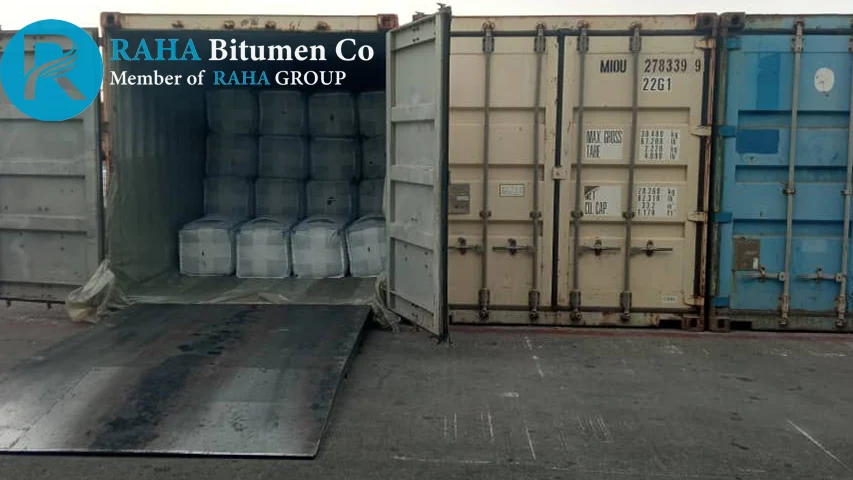
Intro
Bitumen 100/150, also known as penetration grade bitumen, is a vital component in the construction and road-building industries. This versatile petroleum-based product is characterized by its specific penetration range of 100 to 150 decimillimeters, as measured by standard testing methods. Derived from the heavy residues of crude oil distillation, bitumen 100/150 offers a balance of durability and flexibility that makes it particularly suitable for various applications in regions with moderate climates. Its unique properties, including adhesiveness, water resistance, and thermal stability, contribute to its widespread use in asphalt mixtures for road surfacing, waterproofing membranes, and other construction materials. As infrastructure development continues to be a priority worldwide, understanding the characteristics and applications of bitumen 100/150 becomes increasingly important for engineers, contractors, and industry professionals.
Description of Bitumen 100/150
Bitumen 100/150 is a versatile grade of penetration bitumen widely utilized in the construction and road-building industries. This petroleum-derived product is characterized by its penetration value, which ranges from 100 to 150 decimillimeters when tested under standard conditions. This specific penetration range indicates a relatively softer consistency compared to harder grades of bitumen, making it particularly suitable for use in regions with moderate climates.
In road construction, Bitumen 100/150 is commonly used in asphalt mixtures for surfacing. Its softer consistency allows for better workability during application, while still providing a durable surface capable of withstanding moderate traffic loads. The grade’s temperature sensitivity makes it well-suited for areas that do not experience extreme temperature fluctuations, as it maintains its performance characteristics within a moderate range.
The versatility of Bitumen 100/150 can be further enhanced through modification. By adding polymers or other additives, specific properties of the bitumen can be altered to meet particular project requirements. This adaptability, combined with its balanced set of properties, makes Bitumen 100/150 a valuable material in the construction industry, capable of meeting a wide range of needs in moderate climate conditions.
Bitumen 100/150 technical details
The quality of this type of bitumen shows its characteristics and specifications. In addition to penetration testing, there are tests used to determine bitumen grades, including viscosity, softening point, shape, heat loss, and flash point.
Some of these are more important for bitumen penetration 100/150 suppliers and customers. These are the softening point and the Flashpoint.
According to the ASTM D36 method, the softening point of this grade of bitumen is between 39 and 47° C and the flash point of this grade of bitumen is 230 ° C.
Bitumen 100/150 is derived from crude oil through the process of fractional distillation, followed by further refining to achieve the desired penetration grade. Its primary components include asphaltenes, resins, and oils, which contribute to its adhesive properties and durability. The key properties of Bitumen 100/150 include:
- Penetration Value: Indicates the hardness of the bitumen.
- Softening Point: The temperature at which bitumen softens.
- Ductility: The ability to stretch without breaking.
- Viscosity: Resistance to flow, crucial for application at different temperatures.
Process of Bitumen 100/150 Grade
-
Crude Oil Distillation:
- The process begins with the atmospheric distillation of crude oil.
- Lighter fractions are separated, leaving behind a residue.
-
Vacuum Distillation:
- The residue from atmospheric distillation undergoes vacuum distillation.
- This process further separates heavier components, producing vacuum residue.
-
Air Blowing (if necessary):
- If the vacuum residue doesn’t meet the required specifications, it may undergo air blowing.
- This process involves injecting air into the heated bitumen to adjust its properties.
-
Blending:
- Different bitumen streams may be blended to achieve the desired penetration range of 100-150.
- Softer and harder grades might be mixed to reach the target consistency.
-
Cooling:
- The bitumen is cooled to a temperature suitable for storage and transportation.
-
Quality Control:
- Rigorous testing is performed to ensure the bitumen meets the 100/150 grade specifications.
- Tests include penetration, softening point, and other relevant properties.
-
Storage:
- The finished product is stored in heated tanks to maintain its liquid state.
-
Packaging/Distribution:
- Bitumen 100/150 is either loaded into tankers for bulk transportation or packaged in drums or bags for smaller quantities.
The Capability of Bitumen 100/150
Bitumen 100/150 boasts a range of capabilities that make it a versatile and reliable material in the construction industry. Its penetration value, which falls between 100 and 50 millimeters, indicates a medium-hard consistency, balancing flexibility and durability. This specific grade of bitumen is particularly suited for applications that demand resilience under moderate to heavy traffic conditions.
Application of Bitumen 100/150
Bitumen 100/150 finds its primary application in road construction and maintenance. Its moderate softness makes it ideal for creating asphalt pavements for highways, streets, and parking lots, particularly in regions with temperate climates. It is commonly used in base and binder courses of road layering, providing a durable foundation for the surface course. Additionally, this grade of bitumen is effective for surface dressing operations, helping to extend the lifespan of existing roads by sealing and protecting them from water ingress and surface wear.
In the construction industry, Bitumen 100/150 plays a crucial role in waterproofing applications. It is extensively used in the production of roofing membranes, offering excellent protection against water infiltration for both residential and commercial buildings. The material’s water-resistant properties also make it valuable for waterproofing bridge decks, underground structures, and foundations. In large-scale projects, it is utilized for dam and reservoir lining, ensuring the integrity of these critical infrastructures.
The industrial sector benefits from the versatility of Bitumen 100/150 as well. It is employed in creating durable industrial flooring capable of withstanding heavy loads and frequent traffic. The material’s protective qualities make it suitable for coating pipelines and lining storage tanks, offering resistance against corrosion and chemical attack. In the realm of environmental protection, Bitumen 100/150 is used in the construction of landfill liners and containment barriers for hazardous materials, leveraging its impermeability to prevent soil and groundwater contamination.
Beyond these major applications, Bitumen 100/150 serves various specialized purposes. In the transportation sector, it is used in airport infrastructure for runway and taxiway construction, as well as in railway infrastructure for ballast bonding and level crossing surfaces. The material’s sound-dampening properties make it valuable in the production of soundproofing materials for buildings and vehicles. In sports and recreation, it is used in the construction of running tracks and playground surfaces. Its adhesive properties are also harnessed in the production of tile and carpet adhesives, further demonstrating the wide-ranging utility of this versatile bitumen grade.
Packing of Bitumen 100/150
Paving Bitumen, Penetration 100/150 is commonly packed in new steel drums, 150, 180 & 220 Kg barrels, and 1MT and 500 kg Jumbo Bags or 300kg Bitubag. Likewise, the rest of the grades are ready to load Ex-work bulk Bitumen by truck.
Kind of Packing for Bitumen 100/150
The Bitumen 100/150 is packed in Different Major:
- Jumbo Bag
- Steel Drums
- Flexi Tanks
- Bulk in Trunk Tunker
- Bulk in Bulk Vessel
- Bulk in Bitutainer
1. Jumbo Bag
Jumbo bags, also known as Flexible Intermediate Bulk Containers (FIBCs) or big bags, are a popular choice for transporting Bitumen 100/150. These large, flexible bags are typically made from woven polypropylene and are designed to hold between 500 to 2,000 kg of bitumen.
Handling:
- 1MT Jumbo Bag with Pallet and Steel
Cage:
Loading 20Ton in 20ft Container = 20Ton Net
- 1MT Jumbo Bag without Pallet and Steel
Cage:
Loading 20Ton in 40ft Container = 20Ton Net
Advantages of Jumbo Bags in Bitumen 100/150 :
- Cost-effective for bulk transportation
- Easy to handle with forklifts or cranes
- Stackable, maximizing storage space
- Reduced risk of contamination
- Suitable for both solid and semi-solid bitumen forms
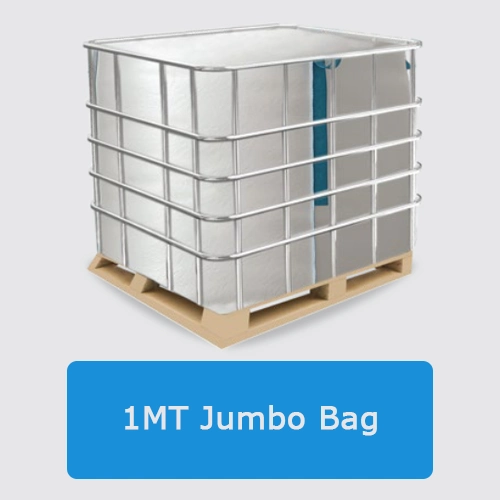
2. Steel Drums
- 180kg New Steel Drum :
Loading 110 Drum in 20ft Container= 19.80 Ton Net - 150kg New Steel Drum:
Loading 110Drum in 20ft Container= 16.50 Ton Net
Advantages of Steel Drums in Bitumen 100/150 :
- Excellent protection against external elements
- Easy to handle and stack
- Suitable for smaller quantity orders
- Reusable or recyclable
- deal for long-term storage
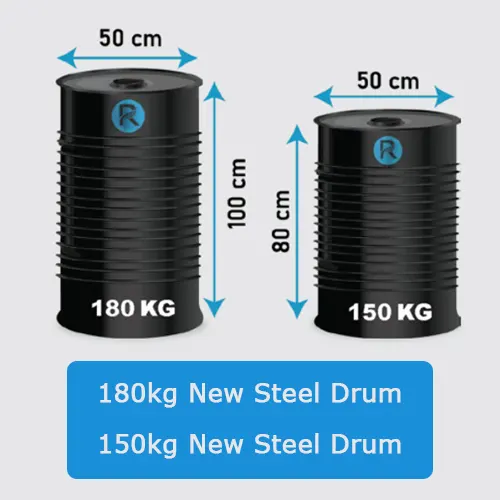
3. Flexi Tanks
Flexi tanks, also known as flexibags or flexitanks, are large, flexible containers designed to fit inside standard 20-foot or 40-foot shipping containers. They are an excellent option for transporting large quantities of liquid or semi-liquid Bitumen 100/150 .
Advantages of Flexi Tanks in Bitumen 100/150 :
- High capacity (up to 24,000 liters in a 20-foot container)Cost-effective for bulk liquid transportation
- Eliminates the need for drum handling and cleaning
- Maximizes the use of container space
- Reduces packaging waste

4. Bulk in Truck Tanker
- Loading 24-25Ton in Bulk Tanker

5. Bulk in Bulk Vessel
- Loading 1,000-30,000 Ton in Bitumen
Carrier Vessel
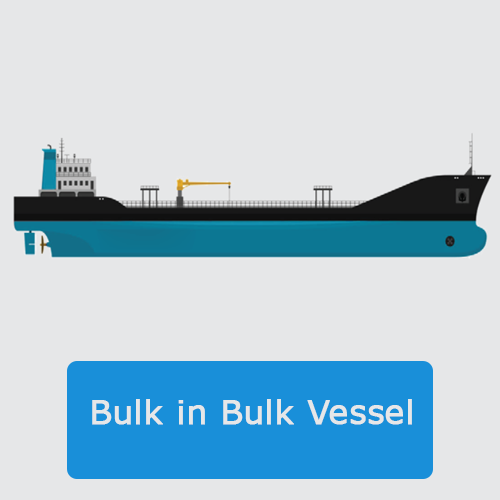
6. Bulk in Bitutainer
- Loading 25 Ton in Bitutainer
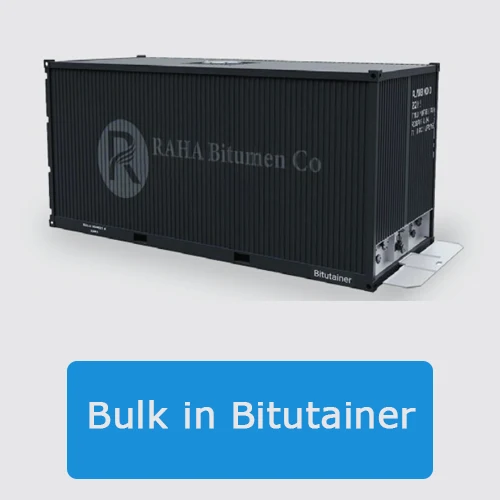
Specification
| Bitumen 100/150 | Test Method | Unit | Specification |
|---|---|---|---|
| Penetration @ 25°c | IP 49 | mm/10 | 100/150 |
| Softening point °c | IP 58 | °C | 39/47 |
| Kinematic Viscosity@135 °C | IP 370 | mm2/s | 175 min |
| Flash Point | IP 36 | °C | 230 min |
| Solubility is CS2(wt) % | IP 47 | wt % | 99 min |
If you are interested in exporting Bitumen 100/150 to China, please feel free to contact us. Our team specializes in facilitating international trade and ensuring the highest quality standards for bitumen. We are committed to providing seamless service, competitive pricing, and reliable delivery schedules to meet your specific requirements.
Related Posts

Intro
Bitumen 100/150, also known as penetration grade bitumen, is a vital component in the construction and road-building industries. This versatile petroleum-based product is characterized by its specific penetration range of 100 to 150 decimillimeters, as measured by standard testing methods. Derived from the heavy residues of crude oil distillation, bitumen 100/150 offers a balance of durability and flexibility that makes it particularly suitable for various applications in regions with moderate climates. Its unique properties, including adhesiveness, water resistance, and thermal stability, contribute to its widespread use in asphalt mixtures for road surfacing, waterproofing membranes, and other construction materials. As infrastructure development continues to be a priority worldwide, understanding the characteristics and applications of bitumen 100/150 becomes increasingly important for engineers, contractors, and industry professionals.
Description of Bitumen 100/150
Bitumen 100/150 is a versatile grade of penetration bitumen widely utilized in the construction and road-building industries. This petroleum-derived product is characterized by its penetration value, which ranges from 100 to 150 decimillimeters when tested under standard conditions. This specific penetration range indicates a relatively softer consistency compared to harder grades of bitumen, making it particularly suitable for use in regions with moderate climates.
In road construction, Bitumen 100/150 is commonly used in asphalt mixtures for surfacing. Its softer consistency allows for better workability during application, while still providing a durable surface capable of withstanding moderate traffic loads. The grade’s temperature sensitivity makes it well-suited for areas that do not experience extreme temperature fluctuations, as it maintains its performance characteristics within a moderate range.
The versatility of Bitumen 100/150 can be further enhanced through modification. By adding polymers or other additives, specific properties of the bitumen can be altered to meet particular project requirements. This adaptability, combined with its balanced set of properties, makes Bitumen 100/150 a valuable material in the construction industry, capable of meeting a wide range of needs in moderate climate conditions.
Bitumen 100/150 technical details
The quality of this type of bitumen shows its characteristics and specifications. In addition to penetration testing, there are tests used to determine bitumen grades, including viscosity, softening point, shape, heat loss, and flash point.
Some of these are more important for bitumen penetration 100/150 suppliers and customers. These are the softening point and the Flashpoint.
According to the ASTM D36 method, the softening point of this grade of bitumen is between 39 and 47° C and the flash point of this grade of bitumen is 230 ° C.
Bitumen 100/150 is derived from crude oil through the process of fractional distillation, followed by further refining to achieve the desired penetration grade. Its primary components include asphaltenes, resins, and oils, which contribute to its adhesive properties and durability. The key properties of Bitumen 100/150 include:
- Penetration Value: Indicates the hardness of the bitumen.
- Softening Point: The temperature at which bitumen softens.
- Ductility: The ability to stretch without breaking.
- Viscosity: Resistance to flow, crucial for application at different temperatures.
Process of Bitumen 100/150 Grade
-
Crude Oil Distillation:
- The process begins with the atmospheric distillation of crude oil.
- Lighter fractions are separated, leaving behind a residue.
-
Vacuum Distillation:
- The residue from atmospheric distillation undergoes vacuum distillation.
- This process further separates heavier components, producing vacuum residue.
-
Air Blowing (if necessary):
- If the vacuum residue doesn’t meet the required specifications, it may undergo air blowing.
- This process involves injecting air into the heated bitumen to adjust its properties.
-
Blending:
- Different bitumen streams may be blended to achieve the desired penetration range of 100-150.
- Softer and harder grades might be mixed to reach the target consistency.
-
Cooling:
- The bitumen is cooled to a temperature suitable for storage and transportation.
-
Quality Control:
- Rigorous testing is performed to ensure the bitumen meets the 100/150 grade specifications.
- Tests include penetration, softening point, and other relevant properties.
-
Storage:
- The finished product is stored in heated tanks to maintain its liquid state.
-
Packaging/Distribution:
- Bitumen 100/150 is either loaded into tankers for bulk transportation or packaged in drums or bags for smaller quantities.
The Capability of Bitumen 100/150
Bitumen 100/150 boasts a range of capabilities that make it a versatile and reliable material in the construction industry. Its penetration value, which falls between 100 and 50 millimeters, indicates a medium-hard consistency, balancing flexibility and durability. This specific grade of bitumen is particularly suited for applications that demand resilience under moderate to heavy traffic conditions.
Application of Bitumen 100/150
Bitumen 100/150 finds its primary application in road construction and maintenance. Its moderate softness makes it ideal for creating asphalt pavements for highways, streets, and parking lots, particularly in regions with temperate climates. It is commonly used in base and binder courses of road layering, providing a durable foundation for the surface course. Additionally, this grade of bitumen is effective for surface dressing operations, helping to extend the lifespan of existing roads by sealing and protecting them from water ingress and surface wear.
In the construction industry, Bitumen 100/150 plays a crucial role in waterproofing applications. It is extensively used in the production of roofing membranes, offering excellent protection against water infiltration for both residential and commercial buildings. The material’s water-resistant properties also make it valuable for waterproofing bridge decks, underground structures, and foundations. In large-scale projects, it is utilized for dam and reservoir lining, ensuring the integrity of these critical infrastructures.
The industrial sector benefits from the versatility of Bitumen 100/150 as well. It is employed in creating durable industrial flooring capable of withstanding heavy loads and frequent traffic. The material’s protective qualities make it suitable for coating pipelines and lining storage tanks, offering resistance against corrosion and chemical attack. In the realm of environmental protection, Bitumen 100/150 is used in the construction of landfill liners and containment barriers for hazardous materials, leveraging its impermeability to prevent soil and groundwater contamination.
Beyond these major applications, Bitumen 100/150 serves various specialized purposes. In the transportation sector, it is used in airport infrastructure for runway and taxiway construction, as well as in railway infrastructure for ballast bonding and level crossing surfaces. The material’s sound-dampening properties make it valuable in the production of soundproofing materials for buildings and vehicles. In sports and recreation, it is used in the construction of running tracks and playground surfaces. Its adhesive properties are also harnessed in the production of tile and carpet adhesives, further demonstrating the wide-ranging utility of this versatile bitumen grade.
Packing of Bitumen 100/150
Paving Bitumen, Penetration 100/150 is commonly packed in new steel drums, 150, 180 & 220 Kg barrels, and 1MT and 500 kg Jumbo Bags or 300kg Bitubag. Likewise, the rest of the grades are ready to load Ex-work bulk Bitumen by truck.
Kind of Packing for Bitumen 100/150
The Bitumen 100/150 is packed in Different Major:
- Jumbo Bag
- Steel Drums
- Flexi Tanks
- Bulk in Trunk Tunker
- Bulk in Bulk Vessel
- Bulk in Bitutainer
1. Jumbo Bag
Jumbo bags, also known as Flexible Intermediate Bulk Containers (FIBCs) or big bags, are a popular choice for transporting Bitumen 100/150. These large, flexible bags are typically made from woven polypropylene and are designed to hold between 500 to 2,000 kg of bitumen.
Handling:
- 1MT Jumbo Bag with Pallet and Steel
Cage:
Loading 20Ton in 20ft Container = 20Ton Net
- 1MT Jumbo Bag without Pallet and Steel
Cage:
Loading 20Ton in 40ft Container = 20Ton Net
Advantages of Jumbo Bags in Bitumen 100/150 :
- Cost-effective for bulk transportation
- Easy to handle with forklifts or cranes
- Stackable, maximizing storage space
- Reduced risk of contamination
- Suitable for both solid and semi-solid bitumen forms

2. Steel Drums
- 180kg New Steel Drum :
Loading 110 Drum in 20ft Container= 19.80 Ton Net - 150kg New Steel Drum:
Loading 110Drum in 20ft Container= 16.50 Ton Net
Advantages of Steel Drums in Bitumen 100/150 :
- Excellent protection against external elements
- Easy to handle and stack
- Suitable for smaller quantity orders
- Reusable or recyclable
- deal for long-term storage

3. Flexi Tanks
Flexi tanks, also known as flexibags or flexitanks, are large, flexible containers designed to fit inside standard 20-foot or 40-foot shipping containers. They are an excellent option for transporting large quantities of liquid or semi-liquid Bitumen 100/150 .
Advantages of Flexi Tanks in Bitumen 100/150 :
- High capacity (up to 24,000 liters in a 20-foot container)Cost-effective for bulk liquid transportation
- Eliminates the need for drum handling and cleaning
- Maximizes the use of container space
- Reduces packaging waste

4. Bulk in Truck Tanker
- Loading 24-25Ton in Bulk Tanker

5. Bulk in Bulk Vessel
- Loading 1,000-30,000 Ton in Bitumen
Carrier Vessel

6. Bulk in Bitutainer
- Loading 25 Ton in Bitutainer

Specification
| Bitumen 100/150 | Test Method | Unit | Specification |
|---|---|---|---|
| Penetration @ 25°c | IP 49 | mm/10 | 100/150 |
| Softening point °c | IP 58 | °C | 39/47 |
| Kinematic Viscosity@135 °C | IP 370 | mm2/s | 175 min |
| Flash Point | IP 36 | °C | 230 min |
| Solubility is CS2(wt) % | IP 47 | wt % | 99 min |
If you are interested in exporting Bitumen 100/150 to China, please feel free to contact us. Our team specializes in facilitating international trade and ensuring the highest quality standards for bitumen. We are committed to providing seamless service, competitive pricing, and reliable delivery schedules to meet your specific requirements.


